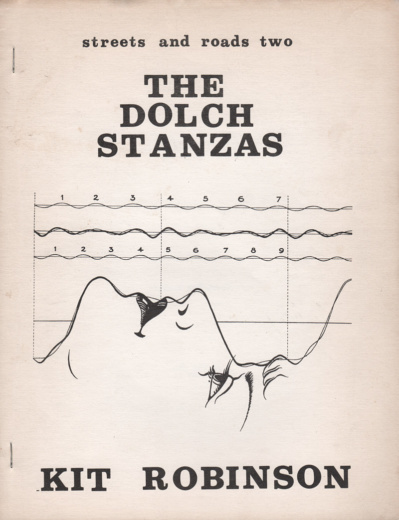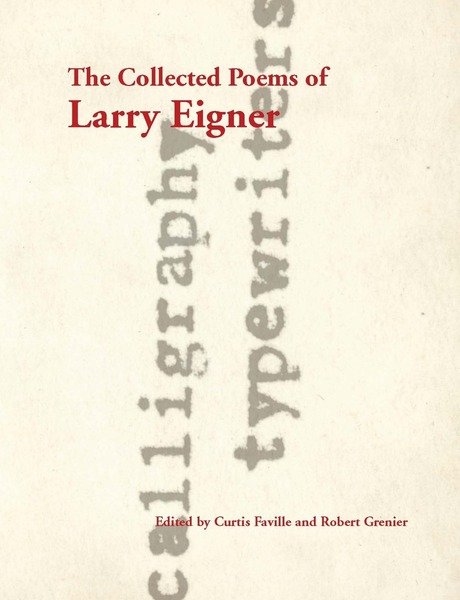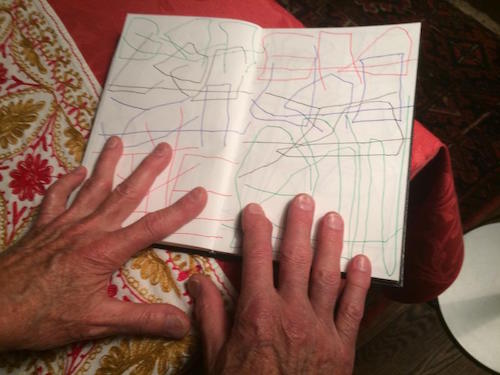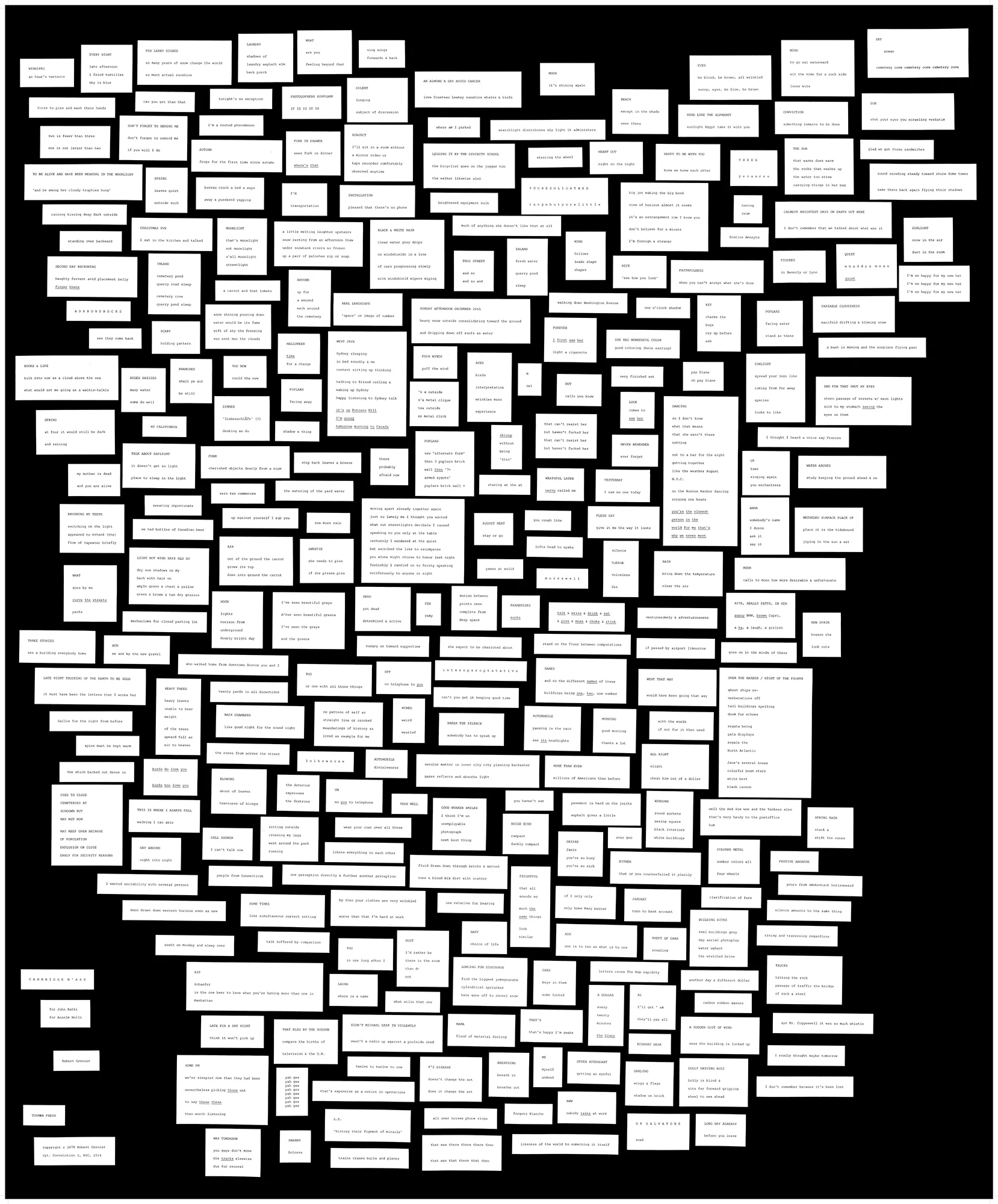from
Minimalism X: Isolation & Concentricity - On a Poem of Robert Grenier
At an extremity of tenderness and awe, I've spent the better part of my adult life in astonished regard of an early mentor whom I encountered at the threshold of my sense of myself as a writer and thinker about literature. After an intense year and a half as a student in his writing class at UC Berkeley in the late 1960's, I maintained but sporadic contact with him through the succeeding decades, until we reunited in the shared labor of editing Larry Eigner's Collected Poems [Stanford University Press, 2010], a task of some seven long years.
Life is often a series of disagreements or misapprehensions, and the resolution of them, often in doubt, may lead to revelation, or confusion. But as regards an objective standard--my appreciation and fascination with Bob's work--there has never been any wavering of my devotion. I often think that I am usually about 5-7 years behind Bob's progress, in terms of how fast his mind moves forward in time. I think it probably takes that long for me to become comfortable with, and to appreciate, just what he is doing at any particular moment. I recall the first time I encountered his S C R A W L works. Although I've never actually seen him "write" one, I watched as he collaborated in the imaging of them by a photographer whom he had contracted to document the work in chrome positives, using a 35 millimeter camera. This was a laborious process, but one which Bob was certain he needed to do, since there seemed no better medium available to preserve the work, which consisted of hand-drawn "visual" poems on facing pages of small art notebooks, in multi-colored inks. Each notebook contains/ed unique works, which cannot be "translated" into other media (such as print) without disturbing the character of the image, which is everything.

Meanwhile, an earlier poem, from his collection Series [this press, 1978], stretches the limits of traditional poetry, at a point in time in which it was/would have been well beyond the known bounds of anything critics or writers of that time would have thought of as "literature." It was so far ahead of its time that it eclipsed possible existing definitions of "poem" to achieve a surreal presence, eerie in its contrast. Here is the poem in its entirety:
JAR
Take a moment to consider. Don't rush. Listen to your feelings. In typing the poem, I'm at a loss to know quite how to present it. Does the poem exist on a typed page, or on the face of a rock? How big are the letters, and where "in space" does it exist? What does it mean? If it's the evidence of some intention, what is that intention, and in what sense is it an "expression" of something, by someone, at a moment "in time"? Since it is not buttressed with any grammatical referents, but exists alone, separated from all other language (words), its isolation implies a regard which magnifies or reduces its possible significance as a "fragment" of speech.
The word, a noun, suggests that it points to, or stands for, the object to which it refers; but that referentiality is without qualification. Does the word jar stand for all jars, or just one particular jar? In a philosophical sense, all jars are jars, and nothing else. But not all jars are alike, and the generic jar may be elaborated into varieties of types and shapes and styles of jar(s). But the word jar, by itself, can't have all those meanings, or conversely, it can incorporate all the senses of (or versions of) jar, inside itself. Call it the set of all possible jars which exist in the universe.
Curtis Faville (The Compass Rose)
************

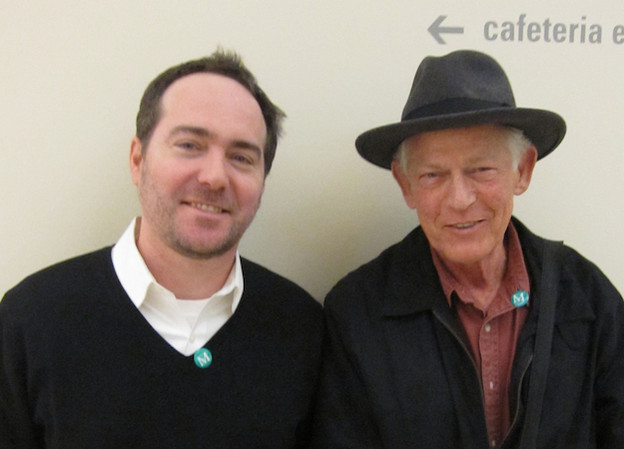



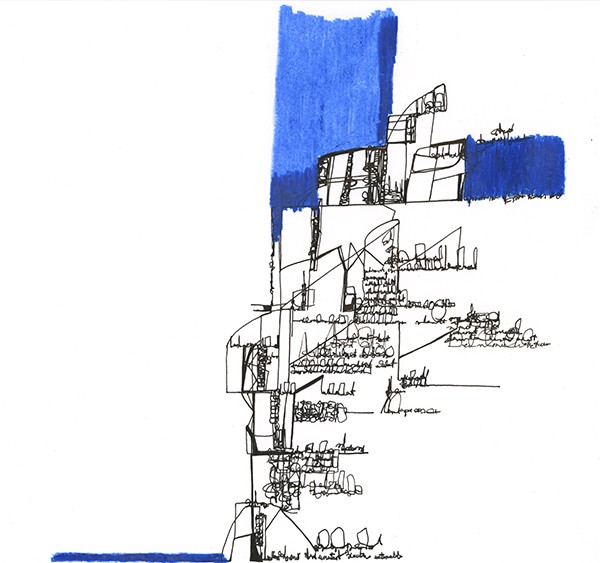
 This drawing is not FIG 2O
This drawing is not FIG 2O





